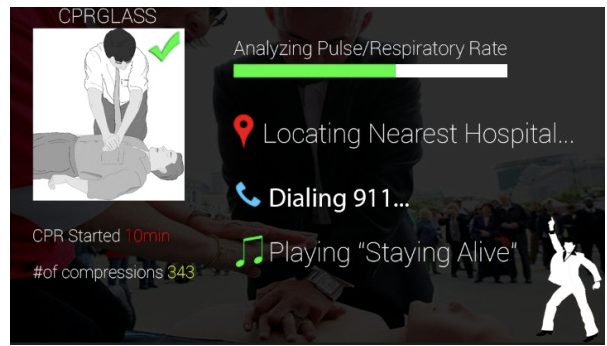Have you had a chance to wear Google Glass yet?
The Google Glass Explorer program was discontinued in January, but there’s still hope for its future. One way this wearable is changing history is through its use in clinical settings, including education. It might seem like a frivolous purchase to your average gadget geek, but Google Glass is improving life in operating rooms (ORs) and other clinical settings.
A Pinpoint Accurate Surgical Tool
We probably aren’t ready for Glass to perform surgery, but it can assist physicians in the OR. Physicians use Google Glass to project radiographic images such as MRI and CT scans as they perform surgery on a patient. They can also use it to consult with other physicians outside of the OR the surgery.
In case you don’t know, physicians are bound to the OR during surgery for safety and hazard protection. Once the surgeon leaves the OR, he is no longer in a sterile environment. Getting real-time help from colleagues is a challenge for active surgeons. With Google Glass, a physician can collaborate in the cloud just like other professions without putting patients at risk. They can send photos and ask for help from their peers.
Building Clinical Apps and Privacy
A patient’s privacy is always one of the major concerns for physicians. Laws such as HIPAA exist to protect patient confidentiality. One issue with Google Glass is that data is available to Google employees and transmission isn’t encrypted. This is one area of improvement that has potential to take off. Some physicians report that they have been asked to remove Glass from normal procedures due to privacy concerns.

source: forbes.com
A Doctor’s Own Filing Cabinet
If you’re thinking of ways to develop clinical apps, just think about a doctor’s life. They have numerous patients to see, a sea of files and paperwork, security and privacy concerns, and (for surgeons) the actual physical part of performing invasive procedures on a patient.
If you remember the last time you went to a doctor, you might recall the large filing cabinets that cover the walls. Doctors no longer need real estate for file storage. With Google Glass, a doctor can open a patient’s file just by speaking to Glass. Apps that allow the doctor to say “open patient file Suzie Smith” save time and money. These apps also mean less time for patients to sit in a waiting room since physicians and nurses don’t need to sift through thousands of patient files.
Monitoring Vital Signs Remotely
One of the most interesting proof-of-concepts, built by Accenture and Phillips, allows physicians to monitor patient vital signs remotely. The app connects Google Glass with a user’s tablet. When vital signs transmitted from the brain show declining health or an emergency situation, the patient can call for medical assistance and use pre-configured commands that let healthcare providers know their concerns.
Think of the millions of people with diabetes, heart conditions, and other medical anomalies that could lead to an emergency situation. These patients would have access to doctors and emergency medical personnel without even knowing that their vital signs are poor. Read more about software development company in Chicago.
What Can You Do for Development?
Some developers gave up on developing apps for Google Glass since its discontinuation of the Explorer program in January 2015. But, healthcare providers still see the benefits of having Glass in a clinical environment. This opens the doors for developers to focus on healthcare apps instead of general “fun” apps that dominate typical app stores.
Glass apps have plenty of potential in a clinical setting. Developers who normally work with HIPAA compliant software and health related software can use Glass to expand their library.
And what other interesting cases of clinical use of Google Glass or other wearables can you add?
Sources: Accenture, Association of American Medical Colleges; featured image - hitconsultant.net






